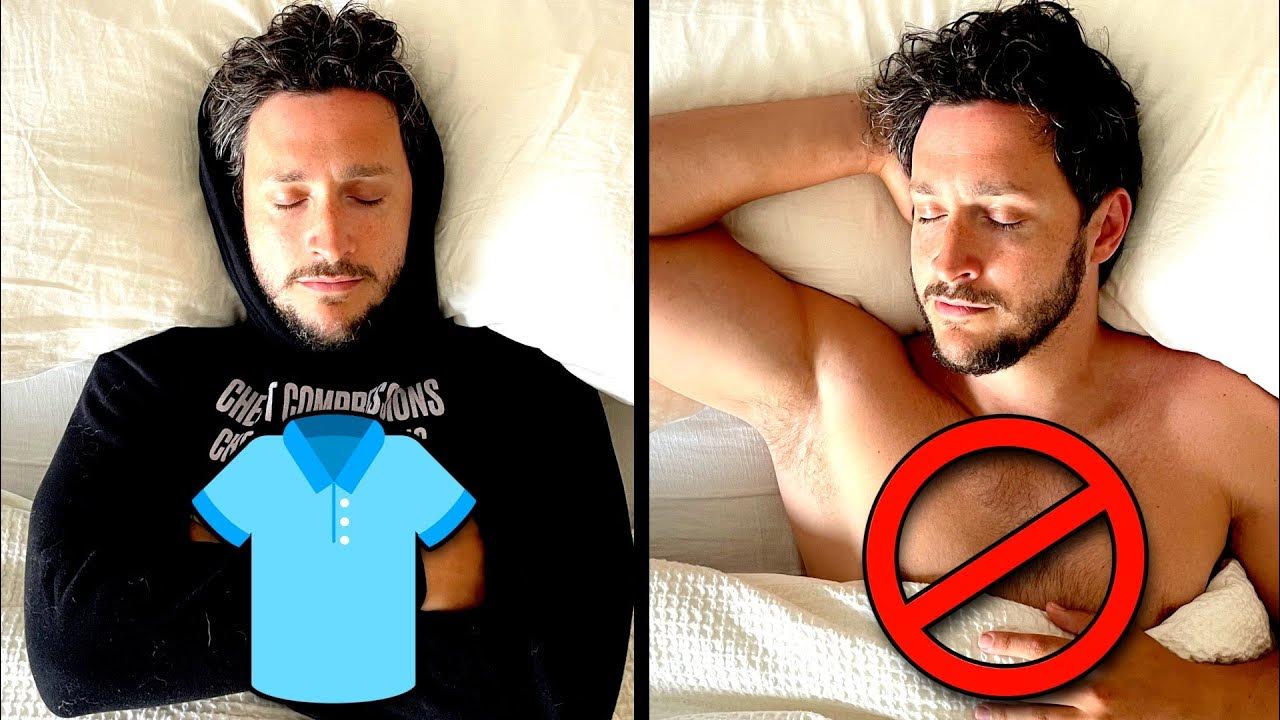Stop Phone Scrolling Before Bed & Do This Instead | Cal Newport
Summary
TLDRIn this insightful video script, the host addresses the common issue of feeling exhausted despite adequate sleep, suggesting that screen time before bed may be a culprit. He recommends avoiding attention-grabbing platforms and instead watching content on subscription-based services to help the brain wind down. Additionally, he discusses the importance of organizational systems to reduce mental fatigue and improve sleep quality. The script also tackles the stress of unstructured evenings, advocating for a clear separation between work and leisure, and the creation of a rejuvenating, albeit less structured, plan for personal time.
Takeaways
- 😴 Getting 8 hours of sleep is not always enough; mental fatigue and context shifting can also lead to tiredness throughout the day.
- 🚫 Limiting screen time before bed is crucial for good sleep hygiene; avoid platforms designed to maximize engagement like YouTube, Instagram, Twitter, and TikTok.
- 🛑 Engaging content near bedtime can be disruptive; opt for less stimulating shows or content that doesn't rely on viewer engagement for revenue.
- 🧠 Having a clear plan for the day can help reduce stress and improve sleep; ensure tasks and responsibilities are captured and reviewed regularly.
- 🔄 Multiscale planning helps in organizing work and reducing the mental load, which in turn can improve sleep quality.
- 🛌 A good shutdown routine at the end of the day can signal to the brain that it's time to rest, aiding in better sleep.
- 🎯 For non-work evenings, having a sketched plan for rejuvenating and meaningful activities can reduce stress and promote relaxation.
- 📚 Reading, exercising, and spending quality time with family are examples of activities that can be part of a non-work evening plan.
- 🤔 The feeling of wasting time during the evening can be addressed by planning activities that are separate from work and contribute to personal growth or enjoyment.
- 🧘♂️ Boredom is a natural human emotion that can drive us to seek out new activities or ideas, and it's not necessarily a negative state.
- 🌙 The key to unwinding after a busy workday is not to do nothing, but to do things that are meaningful and enjoyable outside the context of work.
Q & A
Why does Joel feel constantly exhausted despite getting the recommended 8 hours of sleep?
-Joel may be experiencing mental fatigue rather than physical tiredness, possibly due to excessive context shifting or screen time before bed, which can disrupt sleep quality.
What is the irony mentioned in the script about watching videos on reducing screen time before bed?
-The irony is that Joel might be staying up late watching videos about reducing screen time, which could be contributing to his sleep issues.
What advice is given to reduce screen time before bed?
-Avoid using apps that are designed to keep you engaged for longer periods, such as YouTube, Instagram, Twitter, or TikTok, and consider watching content on platforms that do not rely on engagement for revenue.
What is the difference between attention-engineered services and subscription-based streaming services in terms of their impact on sleep?
-Attention-engineered services press buttons within your brain to keep you engaged and emotionally aroused, which is not conducive to sleep. Subscription-based services, while still engaging, do not rely on keeping you on the platform for extended periods to make money.
How can having a clear separation between work and non-work help with stress and sleep?
-A clear shutdown routine helps the mind transition from a productivity mindset to a relaxation mindset, reducing the stress associated with feeling unproductive during non-work hours.
What is the role of multiscale planning in managing stress and improving sleep?
-Multiscale planning, which includes having a plan for the season, week, and day, helps in organizing tasks and reducing the mental load, making it easier for the brain to relax and fall asleep.
Why is having a plan for non-work time important for people who are organized and productive?
-Having a plan for non-work time helps maintain a sense of purpose and engagement without the stress associated with work, allowing for meaningful and rejuvenating activities.
How can the content of activities during non-work time affect stress levels?
-The content of activities should be varied, interesting, and disconnected from work to provide a sense of fulfillment and relaxation, reducing stress.
What is the significance of 'open loops' in relation to sleep disruption?
-Open loops refer to tasks or responsibilities that are not yet completed or planned, which can keep the brain active and make it difficult to fall asleep.
How can capturing all tasks and responsibilities in a trusted location help with sleep?
-Capturing all tasks in a trusted location ensures that the brain does not have to keep track of them, reducing the mental load and helping with sleep.
What is the importance of having a good shutdown routine at the end of the workday?
-A good shutdown routine helps in reviewing and closing all open loops, providing a sense of completion and allowing the mind to transition smoothly to non-work activities and rest.
Outlines

Cette section est réservée aux utilisateurs payants. Améliorez votre compte pour accéder à cette section.
Améliorer maintenantMindmap

Cette section est réservée aux utilisateurs payants. Améliorez votre compte pour accéder à cette section.
Améliorer maintenantKeywords

Cette section est réservée aux utilisateurs payants. Améliorez votre compte pour accéder à cette section.
Améliorer maintenantHighlights

Cette section est réservée aux utilisateurs payants. Améliorez votre compte pour accéder à cette section.
Améliorer maintenantTranscripts

Cette section est réservée aux utilisateurs payants. Améliorez votre compte pour accéder à cette section.
Améliorer maintenantVoir Plus de Vidéos Connexes
5.0 / 5 (0 votes)






